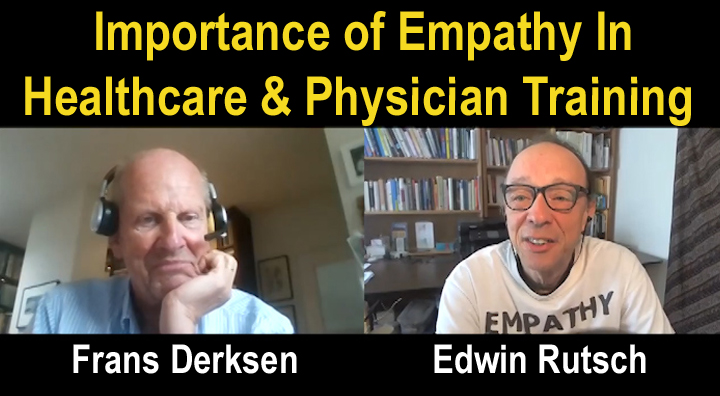|
|
|
Culture of Empathy Builder: Frans Derksen
The Importance of Empathy In Healthcare and Physician Training Frans Derksen and Edwin Rutsch
Papers by Frans Derksen
2013: Effectiveness of empathy in general practice: A systematic review
2014: Empathy: What does it mean for GPs?: A qualitative study
2016: Managing barriers to empathy in the clinical encounter: A qualitative interview study with GPs
2016: Maintaining empathy in increasingly guideline-driven general practice settings
Current Dutch textbook for residents about many aspects of empathy.
|
|
||||






